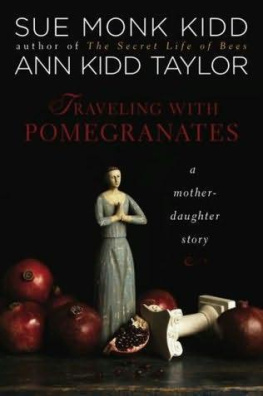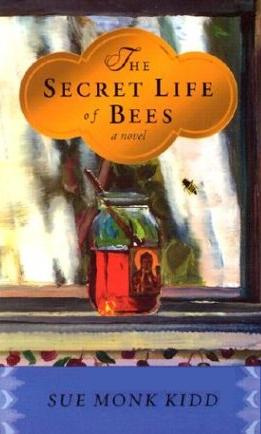Copyright 1997 by The University Press of Kentucky
Scholarly publisher for the Commonwealth,
serving Bellarmine University, Berea College, Centre
College of Kentucky, Eastern Kentucky University,
The Filson Historical Society, Georgetown College,
Kentucky Historical Society, Kentucky State University,
Morehead State University, Murray State University,
Northern Kentucky University, Transylvania University,
University of Kentucky, University of Louisville,
and Western Kentucky University.
All rights reserved.
Editorial and Sales Offices: The University Press of Kentucky
663 South Limestone Street, Lexington, Kentucky 40508-4008
www.kentuckypress.com
Cataloging-in-Publication Data is available from the Library of Congress.
ISBN 978-0-8131-0948-0 (pbk: alk. paper)
This book is printed on acid-free recycled paper meeting the requirements of the American National Standard for Permanence in Paper for Printed Library Materials.
Manufactured in the United States of America.

Member of the Association of
American University Presses
Preface
This is the story of Mae Street Kidd, an African-American woman born in 1904 in Millersburg, Kentucky, a small town near Lexington, to a black mother and a white father. She has lived throughindeed, she is a living representation ofmuch of American history. Although she and her father lived within a few miles of each other, they never met. In fact, she never even saw him until she was grown and living in Louisville. One day, while Mae was visiting her mother, Anna Belle, in Millersburg, someone pointed him out in the post office. They did not speak. Throughout Anna Belles long life (she died in 1984 at the age of 101), she never mentioned Maes father to her, although she was reared with his name.
Minnie Mae Jones was raised by her mother and stepfather, attended the local black school, then spent two years at the Berea Collegesponsored Lincoln Institute in Simpsonville, a boarding school for blacks from Kentucky counties with limited educational facilities for them. When she was twenty-one years old, she moved to Louisville as a single woman and became a successful businesswoman with the black owned and operated Mammoth Life Insurance Company. During World War II she served in England with the American Red Cross. Later she held jobs with United Seamens Service in Portland, Maine, and with insurance and cosmetics companies in Chicago and Detroit. She was twice married and twice widowed. She has no children.
Well into her sixties, she became a politician, serving for seventeen years in the Kentucky General Assemby, where she crusaded successfully for open and low-income housing. Her most important symbolic achievement was sponsorship of a 1976 legislative resolution ratifying the Thirteenth, Fourteenth, and Fifteenth amendments to the U.S. Constitution, which freed the slaves and gave them the rights of citizenship, thus closing at last a dark chapter in Kentucky history.
Her achievements as a professional woman and politician are all the more remarkable when one realizes her limited formal education, her lack of family influence and support, her color, and her sex. As a Kentucky woman of color during a pioneer period of minority and womens rights, she has lived a fulfilled life through sheer will power, hard work, single-minded determination, and a belief that she could do anything she wanted. Throughout her business, professional, and public careers, she pursued her goals with fierce independence. She insisted on living her life her way. As one governor of Kentucky put it, You dont play with Mae Street Kidd, and she doesnt play with you.
I wish to thank several people who have helped me to bring this book to print. First and foremost, I thank my good friend Gregg Swem, who painstakingly transcribed our taped interviews and made my work easy. I also thank Dr. Ernest Ellison, a retired dentist and professor of dentistry who is also a master photographer. He made copies of the precious photographs in Mrs. Kidds scrapbooks. Finally, I thank the gracious and hospitable people in Millersburg who welcomed several strangers from Louisville to their town on Memorial Day 1995 and shared with us the present and past of their charming town: Linda Roozen of Main Street Antiques; Jimmy Pruitt, the local undertaker who knows where all the bodies are buried, living and deceased; and Mr. Craycraft, who showed us the site of Shipptown, where little Minnie Mae Jones grew up.
This self-narrative, based principally on some forty hours of taped interviews in the kitchen of Mrs. Kidds home on Chestnut Street in Louisville in the spring of 1993, is an attempt to capture the voice and the spirit as well as the careers of Mae Street Kidd. No one, of course, speaks a book, no matter how eloquent she is. My job as author has been first to tap Mae Street Kidds memories and opinions of people, places, and incidents, then to check newspapers and such standard references as The Kentucky Encyclopedia for factual accuracy, and finally to put it all together in a coherent narrative that captures her life and her language. As these pages will show, even after a debilitating stroke, heart attack, and loss of vision, Minnie Mae Jones Street Kidds spirit and spunk are alive and well.
In her official capacity as state representative in 1977, Mrs. Kidd wrote to the pastor of her own church, Plymouth Congregational, congratulating the church on its centennial. In the letter she gave her definition of history, emphasizing its human dimension. History, she wrote, is more than a succession of dates and events, of crisis and controversy. It is illuminated, at its best, by the acts and words of the participants. Now, almost twenty years later, she will tell of her role in historyher own acts in her own words. Before, however, she speaks, let us make a short visit to the little rural Bluegrass town where her life began.
A Visit to Millersburg
To get to Millersburg, Kentucky, its best to start from Lexington, taking the Paris Pike (Highway 68 north). Drive leisurely up the lovely two-lane, tree and rock-fence bordered road for a dozen miles to Paris, the seat of Bourbon County, circle the courthouse, then continue north for some six more miles. After you cross Hinkston Creek, you are in Millersburg.
Along this scenic routeone of the most beautiful in Kentuckyyou will pass long rows of maples, pin oaks, and fir trees that line driveways leading back to old and new country mansions that befit a country bred to the sport of kings. In this heart of the Bluegrass it is easy to separate the owners of new minifarms from the old landed gentry. The names alone will do it: The Grange, Elmhurst, White Hall, and Claiborne are weathered by time and tradition, while Pleasure Acres, Bourbon Hills, Maplewood, and Breezy Heights have new-paint sparkle and luxury.

















 Member of the Association of
Member of the Association of